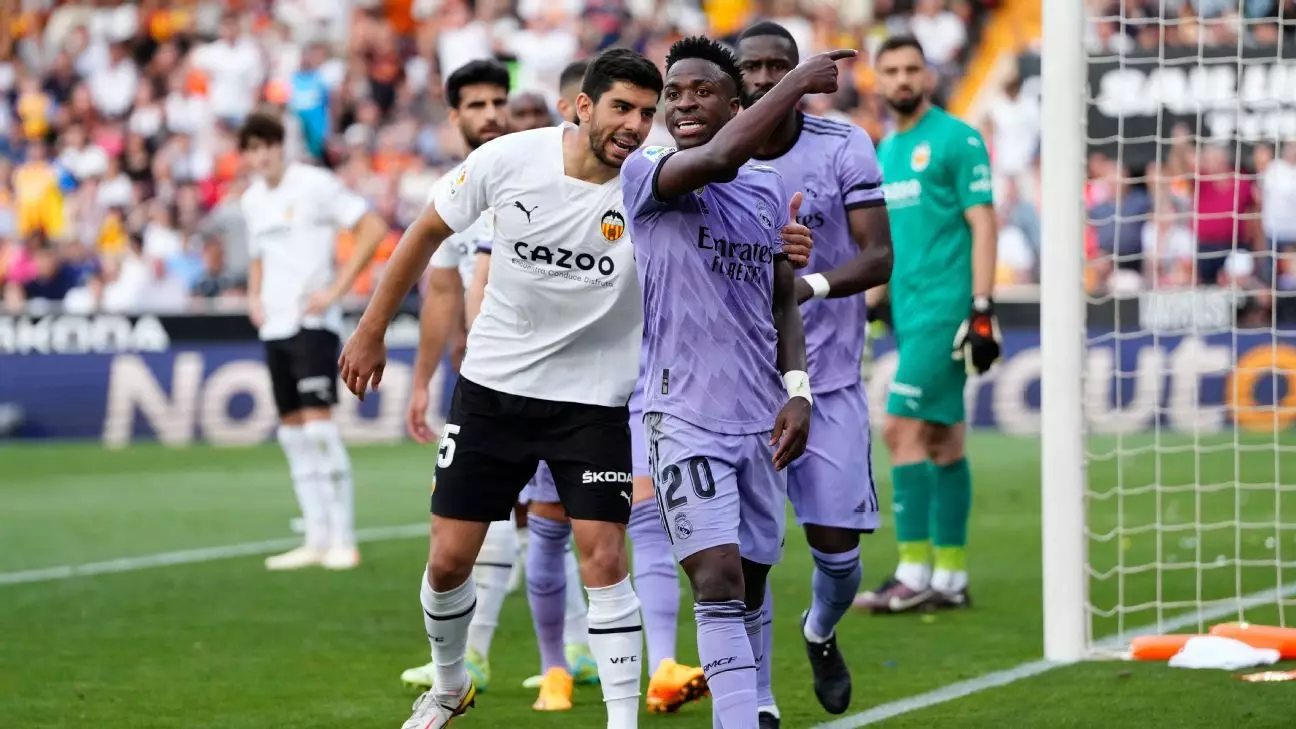The battle against racism in sports, particularly football, has gained renewed momentum globally, and Spain is now stepping up its efforts with significant new protocols. LaLiga, the prestigious Spanish football league, alongside the Spanish Football Federation (RFEF), has announced the adoption of FIFA’s “No Racism” gesture for referees. This cross-arm signal, established during FIFA’s congress in Bangkok in May 2024, serves as a critical tool for referees to indicate the reporting of a racist incident on the pitch. The initiative not only underscores the seriousness of racism in Spanish football but also reflects a broader commitment to fostering inclusivity in sports.
Racism in Spanish football has become an increasingly pressing concern, especially with several well-publicized incidents tarnishing the sport’s reputation. Notably, Brazilian star Vinícius Júnior of Real Madrid has been at the center of these discussions following repeated instances of racial abuse directed towards him during games. The situation escalated dramatically when three fans faced legal consequences for racially attacking him at Valencia’s Mestalla Stadium in May 2023. This marked a watershed moment in Spain’s fight against racism, representing the first time individuals faced prison sentences for such offenses within the realm of football, showcasing the possibility for legal repercussions in an area long plagued by a culture of impunity.
FIFA’s Global Standard Gesture
FIFA’s introduction of a “global standard gesture” for referees aims to enhance consistency in how racist incidents are addressed across leagues. This gesture is part of a comprehensive three-step protocol designed to halt, suspend, and potentially abandon matches in response to racism. In joining this initiative, both LaLiga and the RFEF are aligning with a global movement dedicated to eradicating racism from the sport. The gesture provides a clear visual indicator, ensuring that players, officials, and fans alike are aware of the severity of the situation and the steps being taken to address it.
The first action involves pausing the game and making a public announcement warning spectators about their behavior. If the racist behavior continues, the referee can choose to temporarily suspend the match, sending players to their dressing rooms. The final step—permanently abandoning the match—would be taken only after thorough discussion with security and club officials. This structured approach signals a serious commitment to change, with explicit consequences planned for racist behavior.
Vinícius Júnior has emerged as a prominent advocate against racism, leveraging his platform to demand significant reforms in how LaLiga manages these incidents. His candid remarks in a CNN interview reflect a growing frustration not only among players but also amongst the broader community. He asserted that if significant progress is not made by 2030 to combat racism, Spain should reconsider its hosting of the World Cup, stressing that players should feel safe and respected in the countries they represent.
His assertion encapsulates a critical dilemma facing the sport: while the majority of individuals in Spain may not endorse such hateful behavior, it is clear that a vocal minority can profoundly undermine the nation’s image. This reflects a broader societal challenge where systemic issues must be urgently addressed to ensure a safer environment for all participants in the sport.
The initiatives by LaLiga and the RFEF are commendable, but they are merely the first steps in a long, arduous journey towards full eradication of racism in football. Historical patterns of neglect must be confronted by both governing bodies and the fans they serve. The dialogue surrounding racism cannot stop at punitive measures; it demands an extensive cultural shift in how society views tolerance, inclusivity, and respect within and beyond the football pitch.
As stakeholders in the sport, players, fans, and governing bodies have a collective responsibility to actively participate in this transformation, fostering an environment where everyone can enjoy the beautiful game devoid of fear or prejudice. By reinforcing these protocols and encouraging public discourse on racism, LaLiga and the RFEF are paving the way for future generations to experience football as a realm of solidarity and respect, thus contributing to a more equitable society overall.

